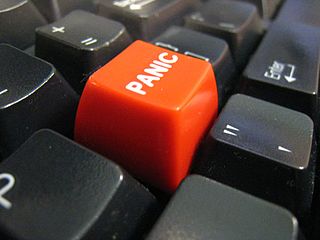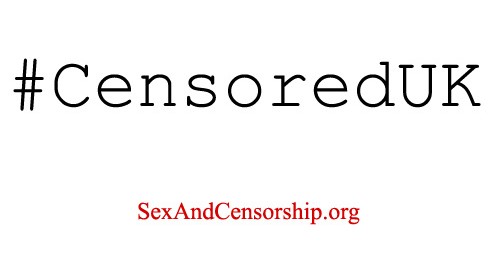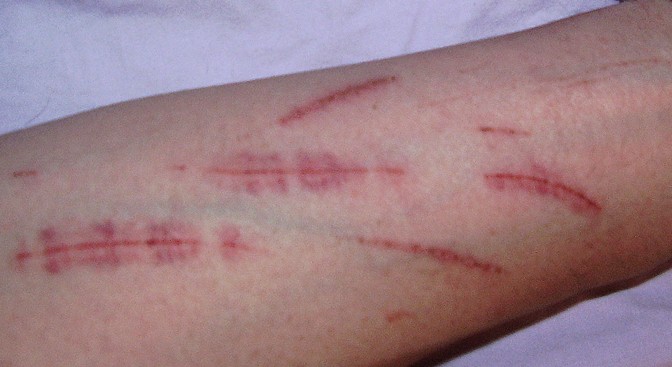On Thursday evening, BBC3 showed a whole hour of porn panic, hosted by Radio One presenter Jameela Jamil. The programme’s title, Porn What’s The Harm, suggested an open-minded enquiry into the question of whether porn is harmful to teenagers who view it. But this was never going to be an unbiased look at the issue. Jamil has long made clear her dislike of pornography. And the programme was as full of misinformation and panic as we expected.
Jamil’s opening words set the scene: “Porn is everywhere!” Um… is it? Of course it isn’t – this is a standard porn panic statement. And it wasn’t alone. Barely a minute passed without Jamil making clear her shock, horror and disgust: “UNBELIEVABLY explicit sex acts”, “In the homes, in the minds, in the lives of our children”, “This is unbelievable!”, “Ordinary families have to deal with this every day”, “Countless children have already been exposed to shocking images”, “I’m horrified!”, “Bombarded with these pornographic images”, and on and on and on…
According to the Internet, Jamil is 28. Yet I wondered at times if she is perhaps in her 50s. Although Internet porn has been freely available for a full generation, Jamil seems to believe she grew up in an innocent, porn-free age, and that young people today are growing up in a different world to the one she did. The web has been widely available for about 20 years, and porn has always featured very heavily, and has been easy to access. And porn on video has been widely available since the 1980s. Anybody under 30 has had easy access to Internet pornography since their early teens, and most people under 50 will have had some exposure to porn as a teenager.
There was a genuine laugh out loud moment for me, when Jamil describes seeing porn at 15, a scene involving a woman and a cucumber, and says: it “…made me not eat a salad for 12 years!” So now we know: porn is responsible for Britain’s unhealthy diets as well as every other bad thing that’s ever happened.
When talking about teens “sexting” images to each other, she again appears to be far older than she actually is. “I’m so glad that every boyfriend I’ve had until now was before picture messaging”, she says. And since picture messaging has been around for a decade or so, poor Jameela has clearly been single since she was 18!
The programme conducts a survey of teens and finds the average age of first accessing porn is 14 – so no great surprise. It then goes on to look at the effects of porn on teens. Rather than speak to experts, the teenagers themselves are asked how they are affected. Such self-report evidence is of little value. How can teens compare themselves to the person they would be if they hadn’t watched porn? How can teens today compare themselves to the teenagers of the 1970s who didn’t have easy access to pornography?
Predictably, although she claimed to be interested in the effects of porn on teens, Jamil didn’t interview any psychologists. If she had, she’d have discovered there is little evidence that pornography is harmful. Instead, there was a brief appearance by two “experts in sexualisation”. And as has already been covered here, sexualisation is simply another keyword designed to invoke moral panic.
Undaunted by the lack of evidence of harm, Jamil goes into full-blown moral panic mode. She raises the case of an 11 year old boy who raped his 8 year old sister after – we are told – looking at porn. And she interviews a rape victim who is “convinced pornography played a part in the attack”.
Of course, if porn really was causing people to commit sexual violence, there would have been a steep rise in sexual crime in the past 30 years, as porn consumption has increased – and as is now well known, the reverse has happened. There is a reverse correlation between porn consumption and sexual violence.
In linking porn to rape, Jamil is playing a trick that has been employed by morality campaigners since at least the 1980s. And like those campaigners, she is guilty of switching the blame for rape away from the rapist, and giving rapists an excuse for their behaviour: “the porn made me do it”.
And then, like all good purveyors of panic, Jamil casually adds child abuse imagery to the equation, helping blur the line between consenting adult sex and the rape of children.
She throws in several other tried-and-tested panic tools for good measure, such as blaming porn for women who have cosmetic surgery on their labia. According to this idea, all vulva in pornography are neat and small, and this makes women seek surgery to copy the pornstars. In fact, porn has taught people that vaginas are not all the same, and some scenes (link NSFW!) positively worship generously-proportioned female genitalia. Her evidence that this is happening? “I often see reports in the media linking porn to labiaplasties”. You mean the same media that allows dishonest, moralistic documentaries like yours to be broadcast on TV, Jameela?
It is disappointing that such propaganda is still broadcast by the BBC in the place of informed, panic-free comment. And of course, there’s an agenda. While pretending to be naive of all things porn, Jamil throws in some very current political soundbites. When browsing porn, she expresses shock that she has not been asked to verify her age, thus fitting in surprisingly neatly with ATVOD’s recent campaign aimed at giving ATVOD statutory powers to censor the Internet. If she had tried to access the same sites from a PC on which child protection software was installed, she wouldn’t have been able to access the images that so shocked her.
So come on BBC: this discussion is welcome, but let’s have some honest, evidence based programming, rather than endless panic aimed at building public support for Internet censorship.


